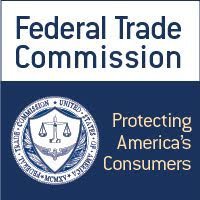FTC Rules and Affiliate/Sponsored Posts – Here’s what you need to know.
A bunch of bloggers that I met at SnapConf last week were very concerned about affiliate marketing and FTC compliance. It was obvious to me that there’s a ton of angst and confusion out there in the blogosphere. I hope this post will help you out.
There Are Only 3 Basic Things to Remember
1. Disclose!
The purpose of the FTC rule is pretty simple. The FTC wants your followers to know if your post is based on some kind of sponsorship (money, free product, etc.) so that your readers will view your endorsement with that in mind. Since your followers may use your post in their decision-making cycle, it’s important for them to understand that there may be some bias in your evaluation. In order to comply with the FTC rule, you must disclose your affiliate relationship in a clear and conspicuous manner. If you purchased the product or service yourself and there is no sponsorship involved, you don’t have to say anything and you’re not required to say that your post is not sponsored.
2. The Form Of Disclosure Isn’t Set In Stone.
The FTC rule doesn’t require any specific “magic words” so you can provide the disclosure in just about any way that you want. The important thing to remember is that your disclosure must inform your followers that the post is sponsored. You may want to take a different approach for different social media platforms.
For example, where the number of characters is limited (like Twitter), you may want to use #ad to alert your reader about the affiliate relationship. If you have more room, you may prefer to use #sponsored or even include a sentence describing the relationship. You could say “The great folks over at XXXXXXX have provided me with a free sample so that I could review it for my followers.” Anything that makes it clear your post is a sponsored post will work so be creative.
You should always make the disclosure before the affiliate link so that the reader is alerted to the sponsorship prior to clicking on the affiliate link. You can’t provide the disclosure on some other page that requires the reader to click over to read the disclosure. Similarly, a “blanket” disclosure on your home page stating that some posts may be sponsored is not good enough. You need to handle the disclosure on a post-by-post level.
3. The FTC Won’t Come After You For Improper Disclosure.
So what happens if you don’t properly disclosure your affiliate relationship? Will the FTC come and take your blogging license away? No. That’s not how it works. However, the FTC may go after your sponsor based on your post. In case you were wondering, that’s a bad thing and not likely to win you any points with your sponsor or lead to future brand opportunities.
Here’s The Bottom Line
If you’re trying to hide or conceal the fact that your post is sponsored, you’re doing it wrong. Bite the bullet, make the disclosure obvious, and let your followers know what you really think. They will respect you and you will gain their trust. Any other course of action will likely lead to problems in the future. If you find this information useful, be sure and share with your fellow bloggers.
Remember – Be Smart. Be Legal.
Disclaimer – Yes, I’m a lawyer, but I’m not your lawyer. All information in this post is provided for educational purposes only and should not be considered legal advice for any person or specific situation.

Thank you so much for the information ( note I said info and not advice.). Very glad that we connected at SNAP.